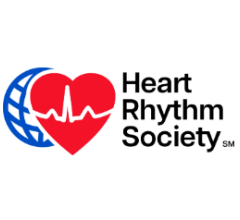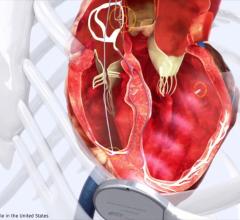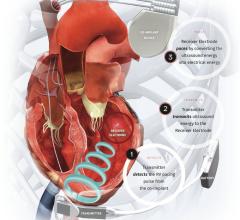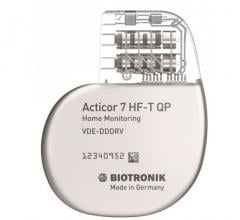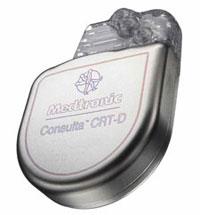
April 12, 2012 – The U.S. Food and Drug Administration (FDA) this week approved an expanded indication for Medtronic’s cardiac resynchronization therapy with implantable cardioverter defibrillator (CRT-D) devices. With the approval, this advanced therapy can now be used earlier, in a mildly symptomatic heart failure patient population, potentially improving survival, reducing hospitalizations and preventing disease progression.
The FDA’s decision for the expanded indication rests on data from the pivotal REVERSE (REsynchronization reVErses Remodeling in Systolic left vEntricular dysfunction) and landmark RAFT (Resynchronization/Defibrillation in Ambulatory Heart Failure Trial) clinical trials, which showed that CRT-D can benefit mildly symptomatic heart failure patients by reducing mortality and heart failure hospitalization rates.
“The RAFT and REVERSE study findings provide strong clinical evidence validating the safety, efficacy and lifesaving benefits of CRT-D for treating systolic heart failure patients with milder symptoms,” said Michael R. Gold, M.D., Ph.D., REVERSE study investigator and steering committee member, Michael E. Assay professor of medicine and director of cardiology at the Medical University of South Carolina. “This expanded indication fulfills an unmet need by treating these patients in the earlier stages of heart failure, before their symptoms more significantly impact their quality of life.”
While certain NYHA Class II patients are already indicated for an implantable cardioverter defibrillator (ICD) to protect them from sudden cardiac arrest (SCA), they are still vulnerable to experiencing an exacerbation of their heart failure. In fact, SCA is responsible for more than 60 percent of deaths among patients with mild-to-moderate heart failure. However, a growing body of clinical research suggests that earlier intervention with CRT-D can decrease the risk of morbidity and mortality in this mildly symptomatic patient population. CRT-D therapy works by resynchronizing the contractions of both ventricles by sending tiny electrical impulses to the heart muscles, which improves the heart’s blood-pumping ability. The device also has defibrillation capability, allowing for termination of life-threatening ventricular arrhythmias.
“Medtronic is pleased with the FDA’s decision to expand the use of the company’s innovative portfolio of CRT-D devices to treat thousands of patients with mildly symptomatic, Class II heart failure,” said David Steinhaus, M.D., vice president and general manager, heart failure, and medical director for the cardiac rhythm disease management business. “We are fully committed to enhancing patient outcomes through our extensive portfolio of advanced medical devices that have been proven safe, effective and efficient in treating heart failure patients across the continuum-of-care.”
The company will be embarking on a post-approval study to further substantiate the clinical benefits of CRT-D treatment in the Class II heart failure patient population. To date, Medtronic has supported eight major heart failure trials that have contributed to the continued development and broadening of evidence-based treatment guidelines.
RAFT Trial
Findings from the landmark RAFT clinical trial, published in the New England Journal of Medicine, showed that CRT-D significantly reduced mortality for mildly symptomatic heart failure patients (NYHA Class II) by 29 percent when compared to patients treated with guideline-recommended implantable ICDs and medical therapy (p=0.006; HR=0.71). The study also demonstrated a significant reduction (27 percent) in combined mortality and heart failure hospitalizations for this population (p=0.001; HR=0.73), consistent with previously published studies. All patients were followed for at least 18 months, and had an average follow-up of 40 months, making it the longest follow-up and largest patient months-of-experience of any study of CRT therapy.
REVERSE Trial
With 610 patients studied, REVERSE was the first large-scale, global, randomized, double-blind trial to demonstrate the impact of CRT in mild heart failure patients or asymptomatic patients who previously had heart failure symptoms. All randomized subjects received a score of improved, unchanged or worsened, utilizing the Clinical Composite Response. For the pre-specified primary endpoint, the results showed that 21 percent of subjects without CRT worsened, compared to 16 percent with CRT (p=0.10); however, post-hoc analyses demonstrated that collectively comparing all the classifications of improved, unchanged or worsened was significant (p=0.004). Importantly, more patients in the trial improved with CRT than without (54 percent vs. 40 percent, respectively). Additionally, the analysis of pre-specified secondary endpoints in the REVERSE trial showed that CRT leads to improvement in both cardiac structure and function as measured by echocardiography, meaning the heart size improves and beats more effectively. CRT also delayed the time to first heart failure hospitalization in this patient group and reduced heart failure hospitalization or all-cause death by 51 percent (p=0.004, post-hoc).
For more information: www.medtronic.com


 July 21, 2025
July 21, 2025 
